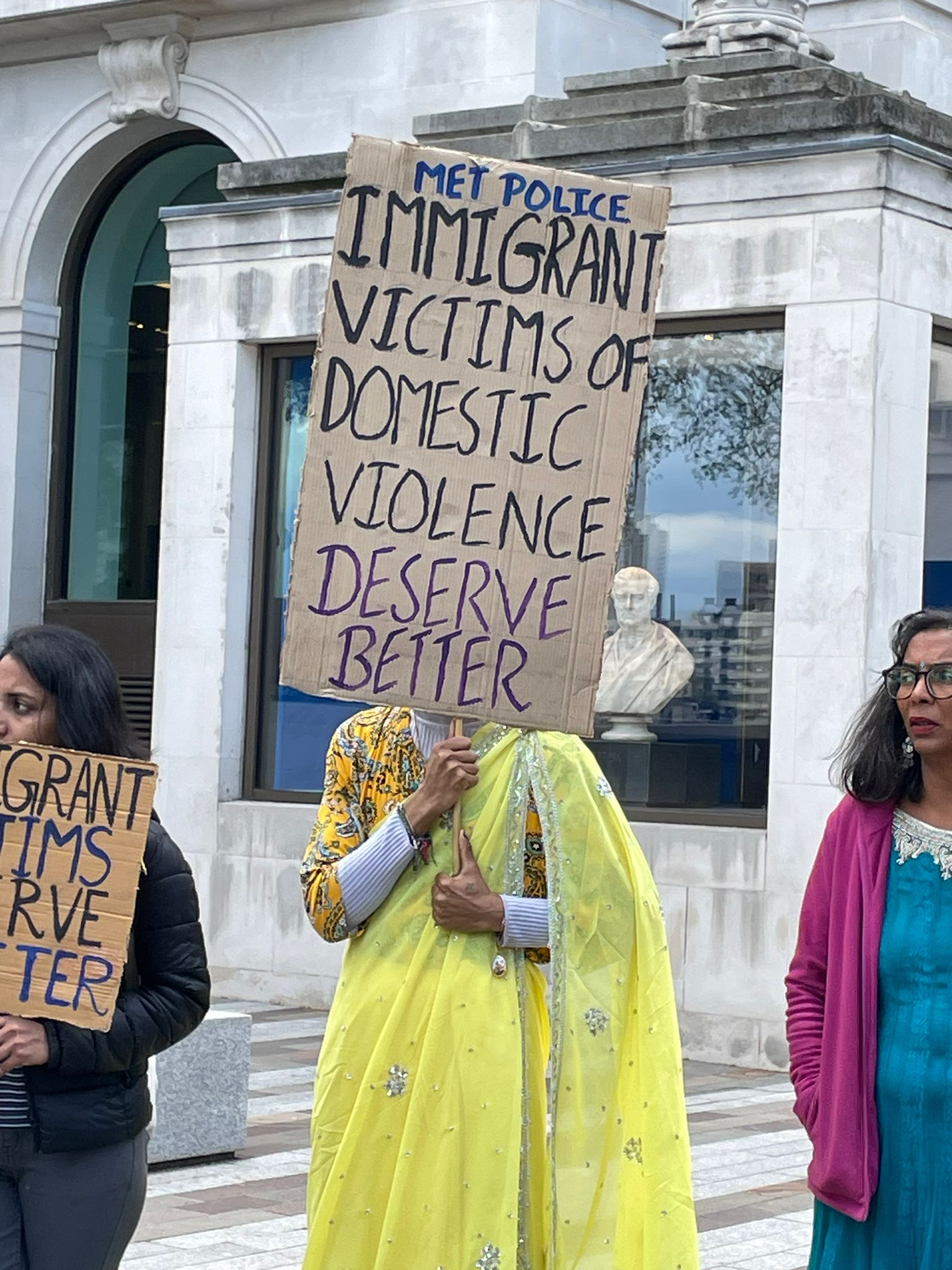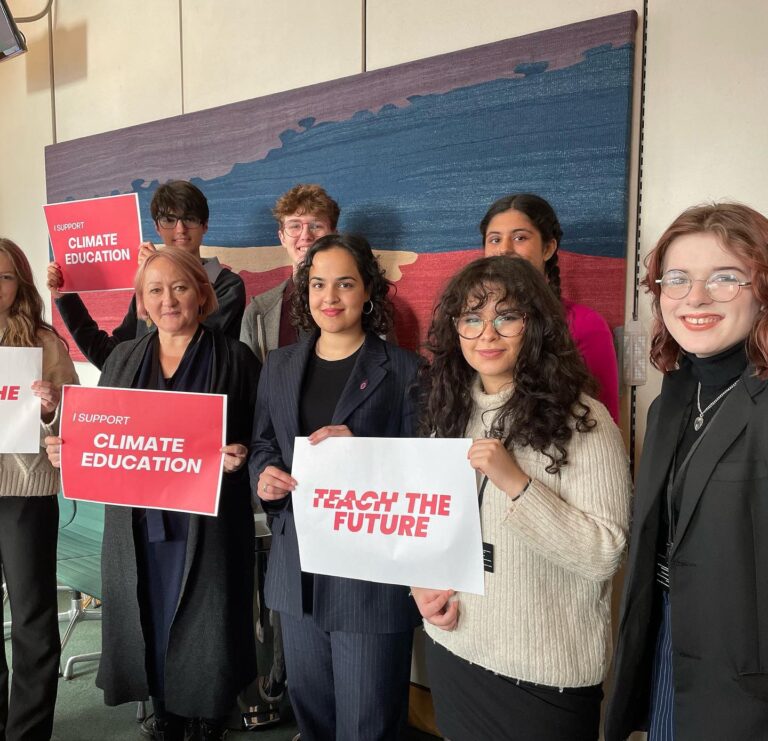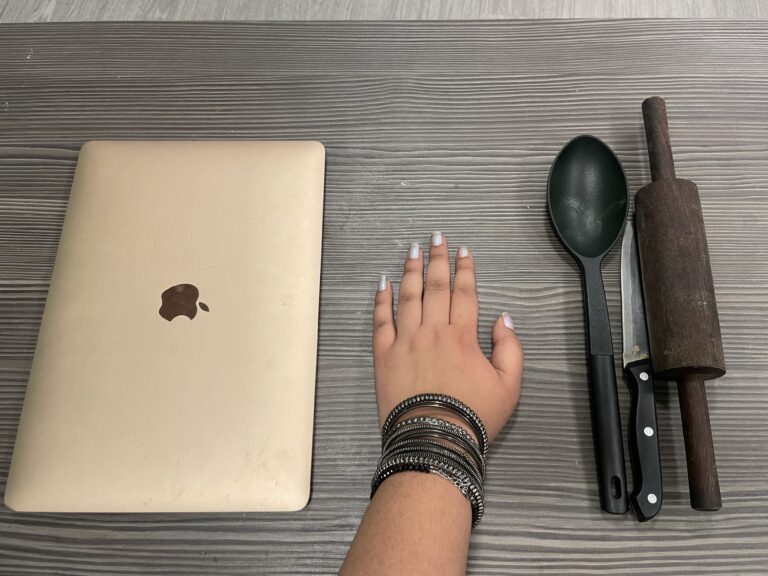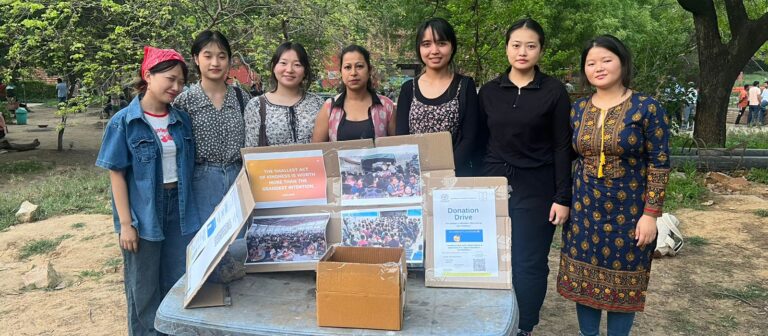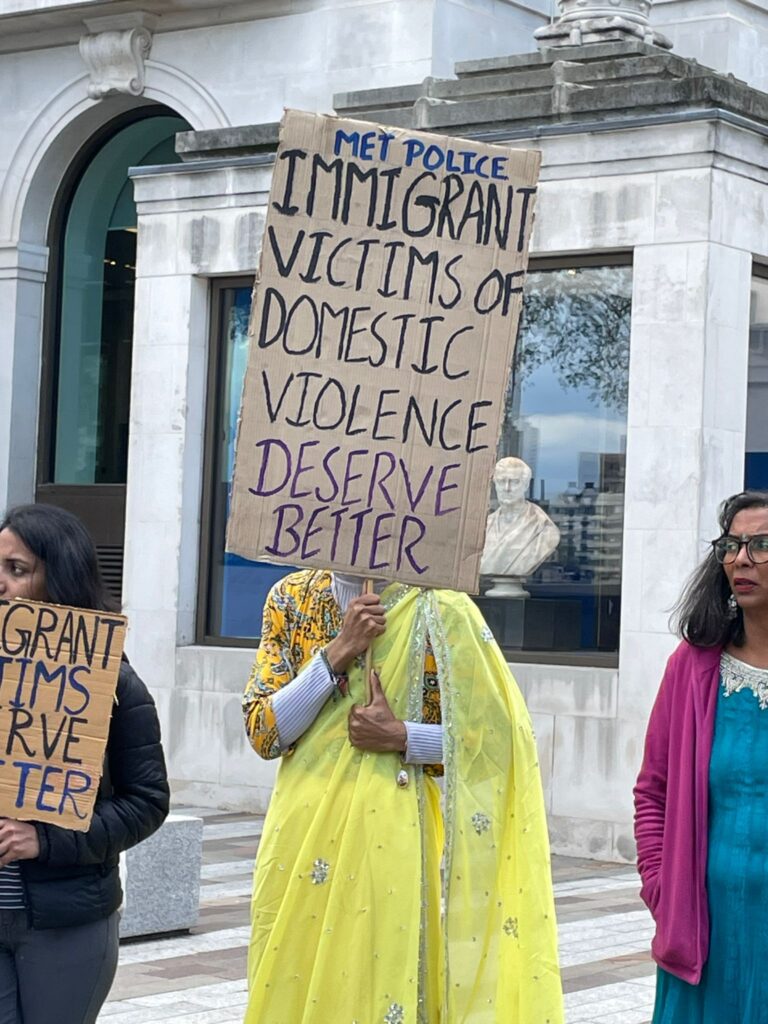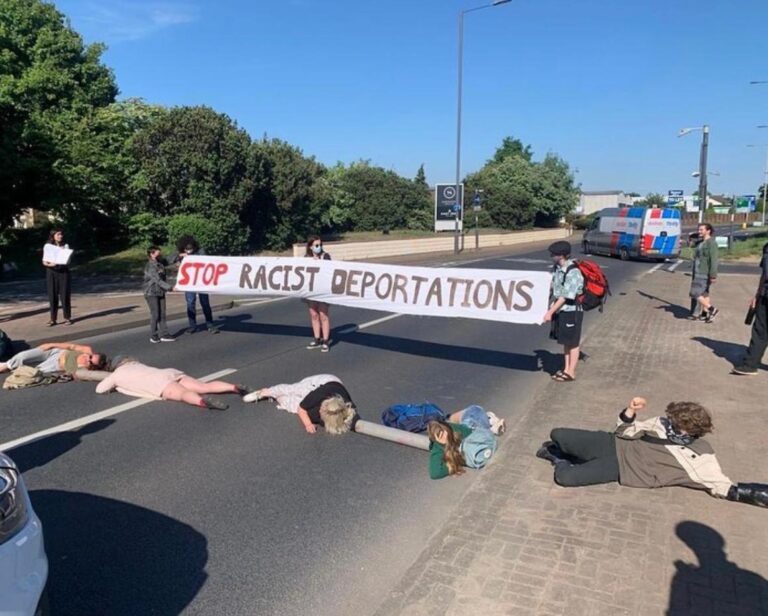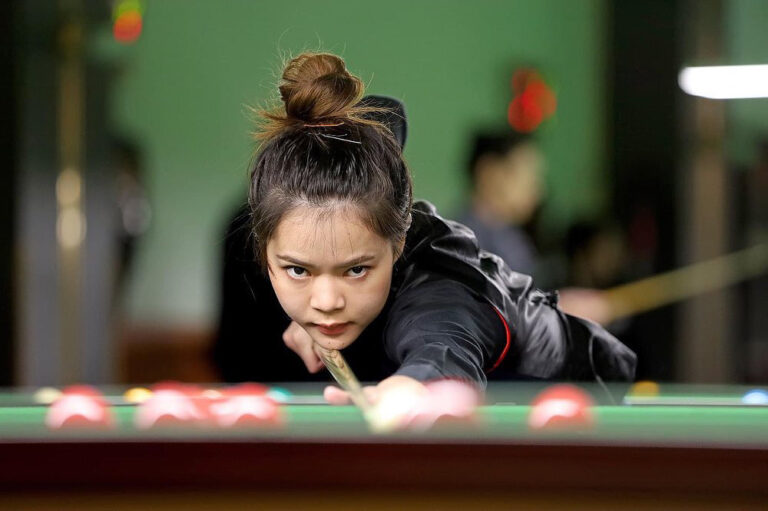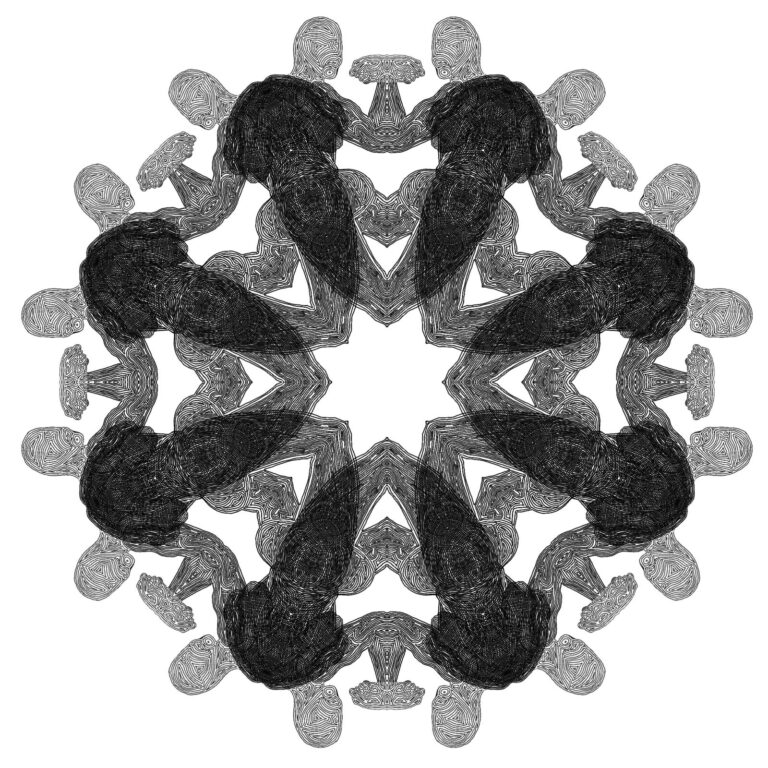Draped in a yellow sari and adorning purple nail polish, Vayu, male, a London swimming coach, proudly held a placard speaking against domestic violence.
The protest was organised by Indian Ladies UK, a non-profit organisation, on 11th May 2023, at New Scotland Yard. Its purpose was to raise awareness about domestic violence victims within South Asian communities in London. Victims at the protest recalled their experiences of domestic violence.
One form of domestic abuse comes in the form of transnational abandonment. As many as 30,000 women of Indian origin may have been victims of transnational abandonment according to a report by the government of India (What year did this report come out? What is the timeframe – is it 30,000 women a year? Decade? Ever?). But watching men like Vayu protesting (for women’s rights), raises the question: how can men help combat gender-based violence in the South Asian diaspora?
Poonam Joshi, a journalist, and the founder of Indian Ladies UK says: “We have a slogan, ‘beta padhao beti bachao’.” It translates to “Educate your sons to save your daughter.” She further adds “Fostering healthy relationships is fundamental to solving the problem”
Education plays a huge role in the fight against domestic violence and this has been identified by UK women’s aid. The charity set up a project called ‘Aanchal’ in Redbridge, London which hopes to educate young boys about healthy relationships. The Redbridge School Project was started by a UK Women’s Aid organisation called ‘Aanchal’ . Boys from year 7-11 studying at schools in Redbridge are provided with free lessons, taught by male staff members of UK Women’s Aid on how to foster healthy relationships.
The issue of transnational abandonment in South Asian communities is not just limited to the UK. Maitri is a non-profit organisation in the San Francisco Bay Area that helps South Asian victims of domestic violence. Maitri hopes to find and eradicate the underlying causes of partner and gender-based violence by creating a dialogue with men and young boys in the community. From educational events to rallies, Maitri aims to create awareness about transnational abandonment.
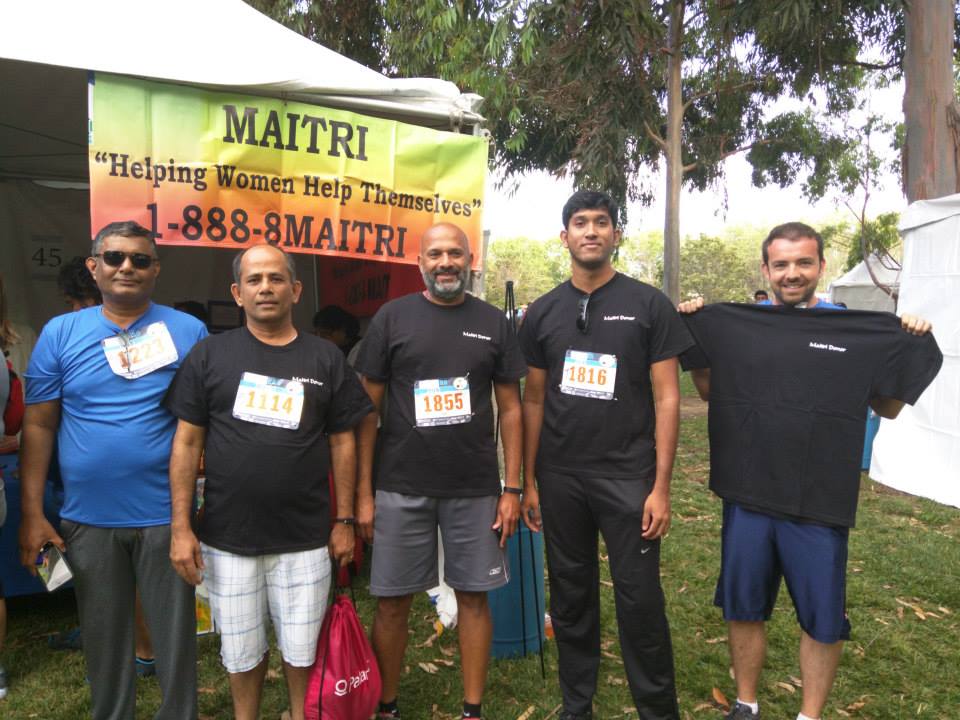
Ambar Mishra, a student from the University of California and an active member of Maitri, believes the emotional education of boys plays a significant role in changing the dynamics of gender-based violence. Whilst thinking back to his experiences during the initial stages of volunteering, he shares he was often taunted as being “feminine” for expressing his feelings which made it more difficult for him to open up as a man. But with the help of supportive parents and close friends, he was able to gauge his emotions and educate himself about healthy masculinity.
“Young boys can be hyper-masculine; thus it is important to teach them the right kind of masculinity – by creating a safe space for them and encouraging them to ask questions, if not done the right, they might be the ones abusing their partner in the future,” Mishra says
Maitri has been conducting workshops for students in high school and college about healthy relationships. Nandini Ray, female, Sr. Manager, Outreach, Prevention & Policy Advocacy at Maitri, shares “These students might be abused or be abusive in future so in our presentations, we talk about how to identify red flags in relationships, and what to do in building healthy relationships.”
Mishra has taken part in these workshops. Mishra advises young boys to work as hard as they can to become emotionally intelligent. “Men can educate themselves by asking their female friends questions as simple as “How can I help and how can I make you comfortable?”
Whether its curating projects to raise awareness about healthy masculinity or supporting victims of gender-based violence at a protest, young boys of South Asian descent are gradually becoming conscious of their role in demolishing patriarchal norms.
Flaunting their yellow sari and inciting placard, Vayu says: “An important step is for the group of men to not remain silent. When you see an issue, raise the issue within your group of men, boys, uncles or even your dad, your brothers, and your nephews. Respect everyone and educate yourselves, that will eventually break the patriarchal system.”
